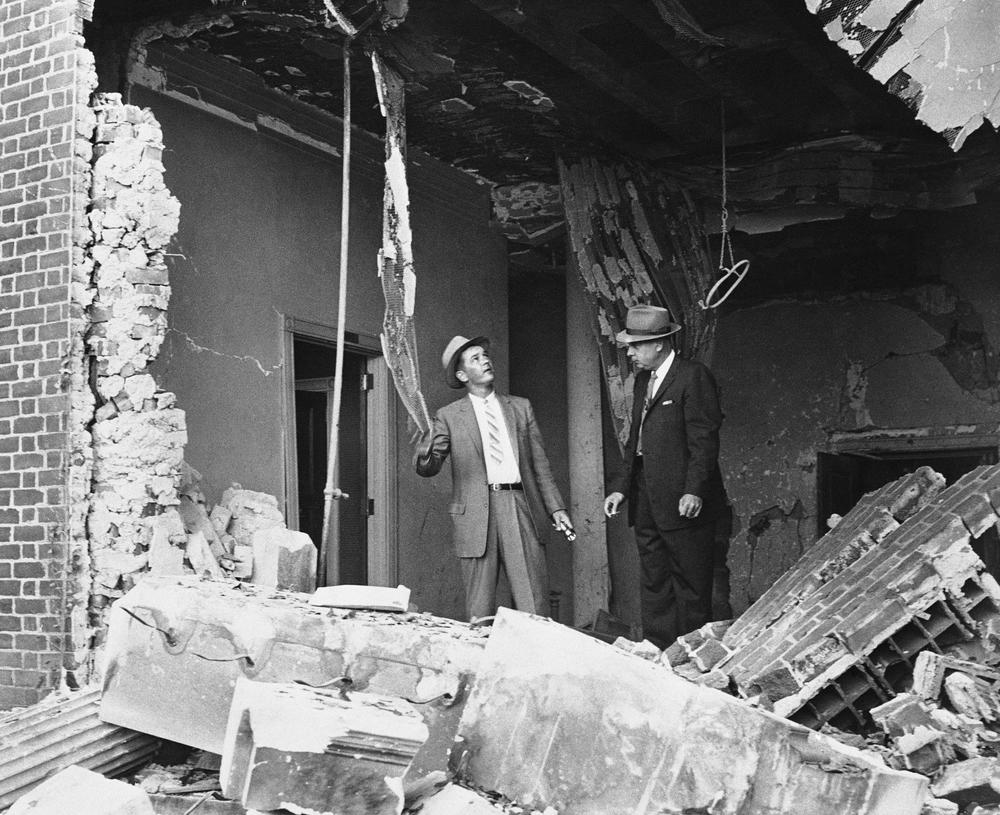Section Branding
Header Content
Janice Rothschild Blumberg On The 150th Anniversary Of The Temple; Kate Tuttle On The Cold War
Primary Content
This years marks the 150th anniversary of the oldest Jewish congregation in Atlanta – the Temple, which was founded in 1867. The congregation was made up largely of well-to-do Atlantans – businessmen and their families who were well respected by many in the much larger Christian community.
Still, over the course of its history, the Temple saw the corrosive impact of hatred and bigotry first hand. In 1915 Leo Frank, a member of the congregation, was lynched by an angry mob that believed him to be guilty of the murder of a young girl who worked at the pencil factory he managed. Although his guilt was in doubt, the lynching was almost certainly inspired by the anti-Semitic campaign launched against him.
More than 40 years later, in 1958 the Temple was the target of a bomb that ripped a hole in one exterior wall and destroyed several offices. No one was hurt or killed.
But authorities had no doubt that the crime was inspired by anti-Semitism. They also believed it was probably a response to the activities of the congregation’s chief rabbi, Jacob Rothschild. He was an early champion of civil rights in the South and had forged deep ties to Atlanta’s black civil rights leaders.
But Rabbi Rothschild was also at the center of an inspiring and game-changing moment in Atlanta’s history.
In 1964, Martin Luther King Jr. was awarded the Nobel Peace Prize. It was a triumph for the civil rights movement. But here in Atlanta, the city’s white leaders were reluctant to acknowledge, much less celebrate, King’s prize. Jacob Rothschild and a handful of others were insistent that King must be honored by his hometown and eventually a now historic dinner was held to celebrate King’s achievement.
Today on “Two Way Street,” in honor of the Temple’s sesquicentennial, we’re going to feature a conversation I had with Rabbi Rothschild’s widow, Janice Rothschild Blumberg. She shared with me her memories of the friendship she and her husband had with Coretta Scott King and Martin, how that remarkable dinner came to happen and how she felt when she saw all of the city’s leaders turn out to pay tribute to a civil rights icon who had never before been acknowledged in his hometown.
We sat down to talk in January of 2015 and first aired our conversation with her a few weeks later. Janice Rothschild was 90 years old at the time – and she’s still going strong today.
Talking with book critic Kate Tuttle
In these early days of the Trump administration there have been many questions raised about how President Trump will deal with Russia and its iron-fisted leader Vladimir Putin.
Those stories reminded us that one of book critic Kate Tuttle’s favorite biographies of the past year is about the young American who went to Moscow at the height of the cold war and for a brief time created a bond between the Russian and American people. The book is “Moscow Nights: The Van Cliburn Story – How One Man and His Piano Transformed the Cold War.” Kate writes about books for the Boston Globe and is a member of the board of the National Book Critics Circle.


